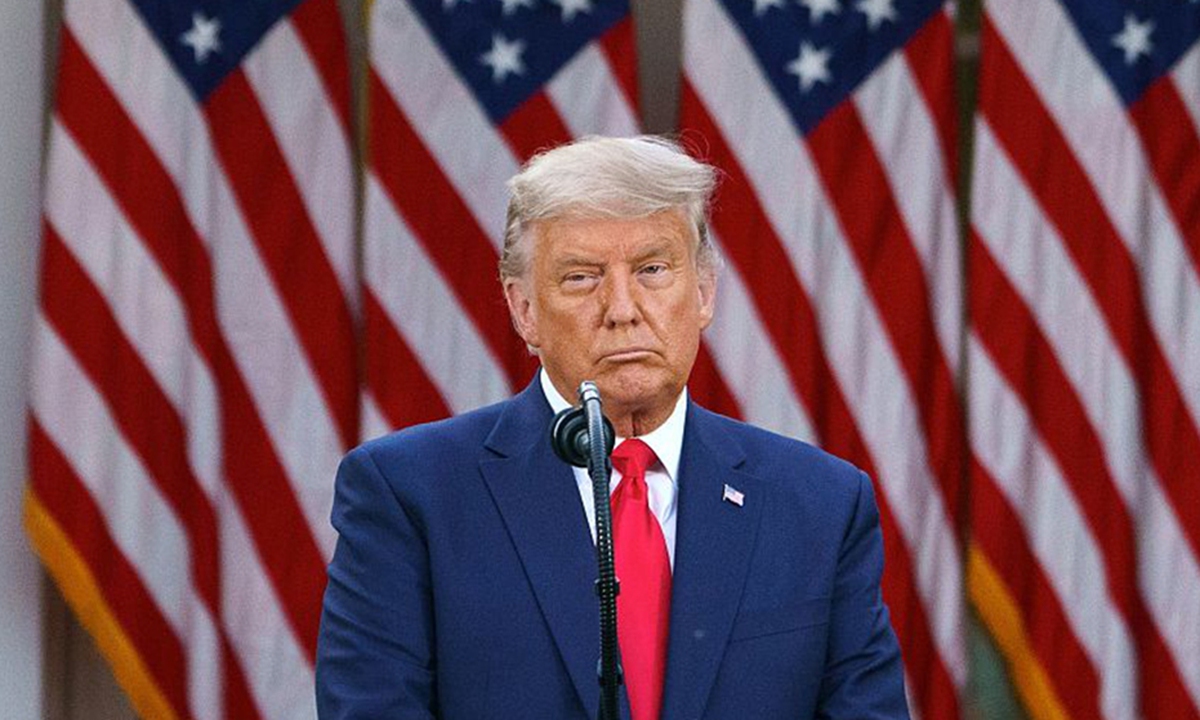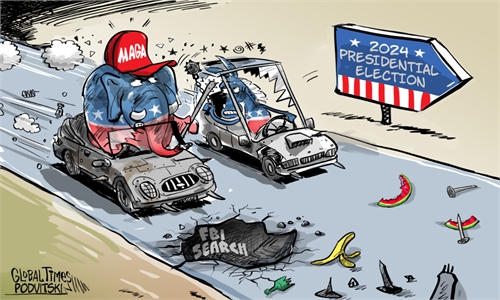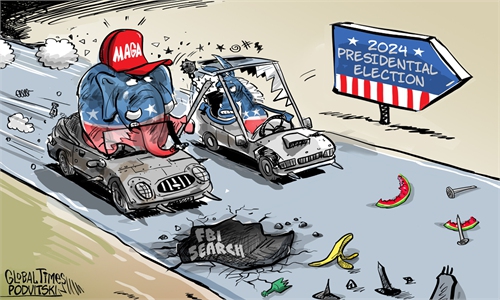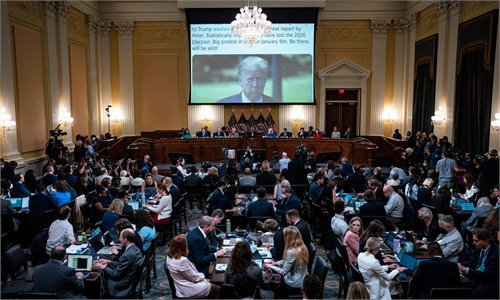
Donald Trump Photo:VCG
On Tuesday night local time, Liz Cheney, a Wyoming Representative and an outspoken critic of former US president Donald Trump, lost her Republican primary to Trump-backed Harriet Hageman, ending her trip to the congressional midterm elections. Meanwhile, former Alaska Governor Sarah Palin, who also has Trump's endorsement, advanced to Alaska's general election.This continues the pattern of victory of Trump-endorsed Republicans in the primaries. Trump has backed over 200 candidates in this election cycle, of which about 180 have won. It proves that the influence of the former president is very strong among the hardcore GOP members, the most common group to participate in the partisan primary elections. Many of these people believe in Trump blindly, almost in a religion-esque way.
The defeat of Cheney is a result of infighting in the Republican Party. Cheney is a member of the neoconservative faction represented by the Bush family. Neoconservatism used to dominate the GOP during the George W. Bush era. But as the Party becomes more and more extreme and turns to the far right, neoconservatism is increasingly detached from the GOP as a whole. As a result, the neoconservative faction has lost its influence in the Republican Party, let alone US politics.
After Trump stated on August 8 that his Florida estate was raided by the FBI, the question of whether the former president is guilty of "mishandling government secrets" has been dominating US public opinion and the political community, leading to bipartisan discussions and even arguments. As Trump-endorsed Republicans almost sweep the primaries, these politicians will surely keep hyping up the FBI's raid to attack the current government led by the Democratic Party, creating even more bipartisan wars of words.
At the same time, the recent drama over Trump is seemingly stealing the spotlight from other more prominent issues in US society that should have been the main focus: soaring prices, energy shortages, healthcare, and so on. Politicians should spend most of their attention on finding solutions to the most urgent problems for the people, but now they are barking up the wrong tree to satisfy their personal political interests at the expense of people's welfare. This indeed manifests a new sign of decadence in US domestic politics.
The arguments over Trump will be seen in US media for a while, but as time goes by, it is unlikely to remain the biggest issue with the most significant media attention. The top concern in this year's midterm elections will still be economic issues, a series of matters that some politicians claim they are focusing on to win over and curry favor with voters. As for whether they can solve these problems or not, these politicians do not care. They just shout out the people's pain on those problems, aiming to go further in the elections.
Experience has shown that a large number of US domestic problems have not been solved at all after the elections. Therefore, the country's political election is indeed a lacerative procedure that "concerns" the well-being of voters in words, but is guided by the political interests of politicians in action.
The US electoral system has reached the point of rot. While the basic pattern of the system - being manipulated by plutocracy - has not changed, a new layer of politicization and weaponization of the judiciary is now added, as proven in the FBI's recent raid.
So-called democracy in the US is now far away from the dream that was cherished by the nation's founding fathers. Such "democracy" has long lost its capability to solve the problem in essence. Instead, it has become a system for politicians to mobilize the voters' appetite for their political prospects. Hence, while the US is touting itself as a "democracy," its internal problems have demonstrated again and again that it is getting farther and farther from true democracy.
The article was compiled by the Global Times based on an interview with Lü Xiang, a research fellow at the Chinese Academy of Social Sciences. opinion@globaltimes.com.cn



